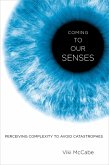Order affects the results you get: Different orders of presenting material can lead to qualitatively and quantitatively different learning outcomes. These differences occur in both natural and artificial learning systems.
In Order to Learn shows how order effects are crucial in human learning, instructional design, machine learning, and both symbolic and connectionist cognitive models. Each chapter explains a different aspect of how the order in which material is presented can strongly influence what is learned by humans and theoretical models of learning in a variety of domains. In addition to data, models are provided that predict and describe order effects and analyze how and when they will occur. The introductory and concluding chapters compile suggestions for improving learning through better sequences of learning materials, including how to take advantage of order effects that encourage learning and how to avoid order effects that discourage learning. Each chapter also highlights questions that may inspire further research. Taken together, these chapters show how order effects in different areas can and do inform each other.
In Order to Learn will be of interest to researchers and students in cognitive science, education, machine learning.
Dieser Download kann aus rechtlichen Gründen nur mit Rechnungsadresse in A, B, BG, CY, CZ, D, DK, EW, E, FIN, F, GR, HR, H, IRL, I, LT, L, LR, M, NL, PL, P, R, S, SLO, SK ausgeliefert werden.









